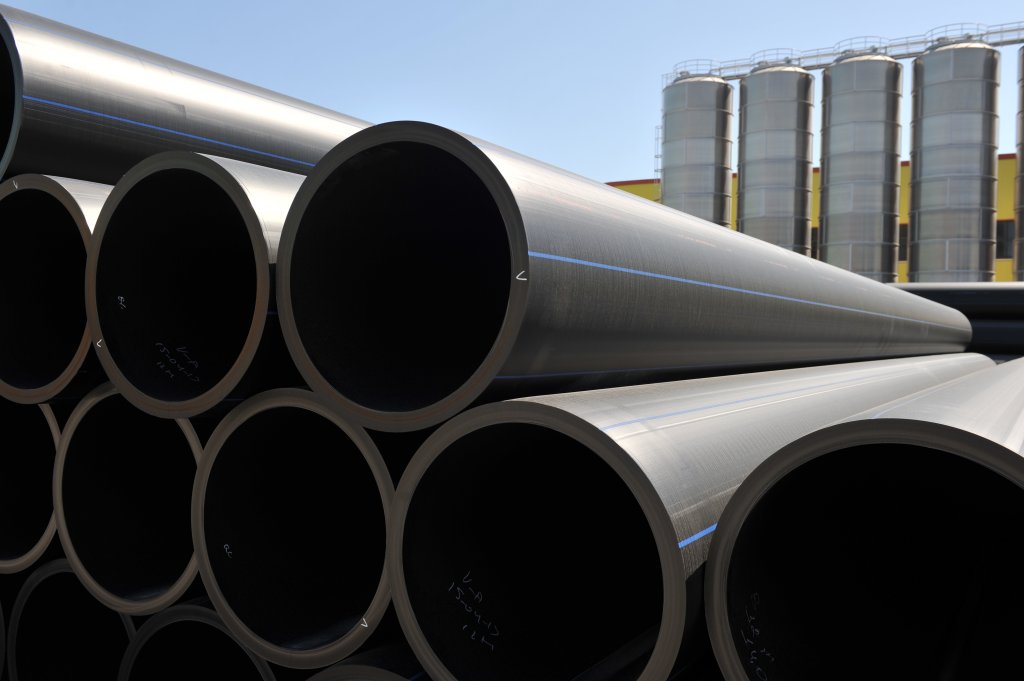Understanding the Key Conveniences of HDPE Pipeline for Water and Wastewater Monitoring
Using HDPE pipe in water and wastewater management provides numerous advantages that warrant consideration. Its phenomenal longevity and long life expectancy make it a recommended choice for numerous jobs. Additionally, the product's resistance to deterioration and chemical damages improves its dependability in different environments. The benefits expand past just long life and resistance. American Plastics HDPE Pipe for Oilfield. Discovering its cost-effectiveness and environmental effect discloses also a lot more engaging reasons for its prevalent adoption in modern framework
Exceptional Sturdiness and Durability

HDPE pipeline stands apart for its remarkable resilience and long life, making it a recommended option in water management systems. Built from high-density polyethylene, these pipelines can endure substantial pressure and tension, guaranteeing trusted efficiency gradually. Their durable nature enables them to endure extreme ecological conditions, including temperature variations and dirt motions, which can cause various other products to fail.
The life-span of HDPE pipelines often goes beyond half a century, supplying an affordable service for communities and markets alike. In addition, the product's lightweight properties simplify installation, decreasing labor costs and timeframes. This sturdiness reduces the need for constant fixings or substitutes, additionally boosting its financial charm.
In water administration applications, the dependability of HDPE pipes implies fewer disruptions and enhanced service connection, making them indispensable to lasting facilities development. The combination of resilience and longevity strengthens HDPE's function as a cornerstone in effective water monitoring options.

Resistance to Deterioration and Chemical Damages
While several materials catch deterioration and chemical damages in time, HDPE pipes show amazing resistance, making them perfect for numerous water monitoring applications. This durability originates from the molecular structure of high-density polyethylene, which is inherently non-reactive and does not wear away like metals or weaken from exposure to extreme chemicals. Consequently, HDPE is extremely reliable in atmospheres with hostile substances, such as wastewater systems that might contain acids, bases, and organic solvents.
In addition, HDPE pipes can stand up to ecological aspects such as soil acidity and saline problems, further improving their viability for diverse applications (Texas hdpe pipe manufacturer). Their capability to preserve architectural honesty with time decreases the danger of leakages and failings, which is critical in making sure the safety and security and reliability of water distribution and wastewater management systems. The resistance to rust and chemical damage noticeably adds to the general efficiency and longevity of HDPE piping solutions.
Cost-Effectiveness and Financial Advantages
When considering the monetary ramifications of water administration systems, the cost-effectiveness of HDPE pipelines ends up being apparent. These pipes provide lower installation and maintenance costs contrasted to typical products like metal or concrete. Their lightweight nature streamlines transportation and installation, causing lowered labor expenditures. Furthermore, HDPE pipes show a long lifespan, typically exceeding half a century, which equates to fewer substitutes and long-lasting savings.
The resistance of HDPE to corrosion and chemical damages lessens the need for pricey repair work and substitutes. The pipes additionally sustain efficient water circulation, lowering power try this web-site expenses connected with pumping systems. By reducing leaks and water loss, HDPE pipes contribute to significant economic advantages for towns and sectors alike. In general, the first investment in HDPE piping can generate considerable economic returns over the life expectancy of the water management system, making it a sensible option for lasting framework advancement.
Environmental Sustainability and Reduced Impact

Convenience and Adaptability in Installation
As a result of their special buildings, HDPE pipes use remarkable adaptability and adaptability in installment, making them ideal for a broad variety of applications. Their light-weight nature permits for easier handling and transportation, minimizing labor prices and setup time. HDPE pipelines can be bent and shaped to fit different terrains and job requirements, which is particularly advantageous in challenging environments.
Additionally, their resistance to deterioration and chemical damage permits installation in varied setups without the need for specialized safety finishes. The ability to fuse joints develops a continuous, leak-free system, boosting the overall honesty and reliability of the installment. HDPE's versatility also fits ground activity, decreasing the threat of damage in locations prone to changing soil. Generally, these qualities make HDPE pipes not just versatile however additionally a favored option for water and wastewater management systems.
Regularly Asked Concerns
Just How Does HDPE Pipe Contrast to PVC in Water Monitoring Applications?
HDPE pipe offers superior adaptability, resistance to large diameter pvc pipe rust, and toughness contrasted to PVC. Its lighter weight helps with easier installment, while its long lifespan reduces replacement expenses, making HDPE a recommended choice in water administration applications.
What Is the Lifespan of HDPE Pipeline Under Regular Conditions?
Under regular conditions, HDPE pipelines can have a life-span varying from 50 to 100 years. Their longevity and resistance to deterioration contribute to their long-term performance in various applications, making them a trusted selection for infrastructure.
Are HDPE Pipeline Recyclable After Their Life Span?
Yes, HDPE pipes are recyclable after their life span. American Plastics HDPE Pipe Manufacturing. They can be refined and repurposed into new products, significantly minimizing environmental effect and promoting sustainability within the industry, making them a green selection for piping solutions
What Is the Setup Process for HDPE Pipeline?
The installment procedure for HDPE pipes includes website preparation, trenching, pipeline blend or mechanical signing up with, backfilling, and stress testing. Proper strategies assure a sturdy and effective system for transporting water and wastewater properly.
Can HDPE Pipes Be Used for Both Potable and Non-Potable Water Equipments?
Yes, HDPE pipelines can be made use of for both drinkable and non-potable water systems. Their flexibility, longevity, and resistance to deterioration make them appropriate for different applications, making sure safe and reliable transportation of water in different contexts.